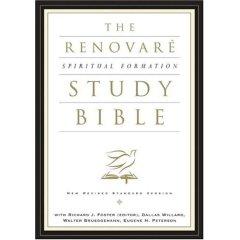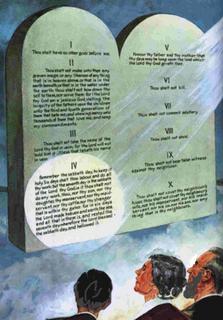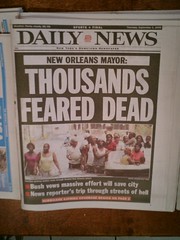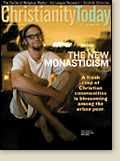
Every once in a while you read a book that you needed to read. I needed to read Provocative Faith at this time. From the first page of chapter 1 you know this is not your run of the mill Christian answer book. Right there, in black and white, at the bottom of page 31, Matthew boldly confesses his sin, his struggle with porn. His authenticity and transparency are disarming...and so refreshing.
This book relates Matthew's journey from ordinary, mundane Christian faith to passionate, provocative faith. Matthew challenges the reader to move from the "same ole same ole" faith to a faith that is "centered, stimulating, controversial, challenging, powerful, miraculous, vulnerable, frustrating, and fearful--in a word, provocative" (p. 21).
This book is full of great reminders and insights for all disciples. I am currently examing my call in light of several things that are happening at my two churches. So far, God has been silent. I'm learning to wait patiently as Matthew describes in his chapter "the burning bush isn't for everyone." I'm taking inventory, seeking to "participate in God's dream for (me)" (chapter 10). Is this call where God wants me? Matthew says it well,
If God has given you a dream, and chances are he has, it is imperative that you seek his will on how to make it a reality. Never lose focus on the truth that the dream is a blessing and a gift from Jesus. But in the end, don't you want to hear, "Well done, good and faithful servant"? I want to hear Jesus say to me, "Matthew, you took my dream in you and made it what I wanted it to be; good job!"
I too want to hear those words.
Matthew also reminded me of one way to tune into Jesus and his dream and will for me: meditation.
If you get one thing from this book, let it be this: meditation on Jesus will change your spiritual life. It will rejuvenate your faith like nothing else you will ever experience. More than a great sermon, more than listening to a radio teaching, more than reading this book, meditation on Christ--what he did, who he is, and what he wants of you--will give your life focus, and it will make your faith provocative. And you will begin to know him like never before.
I needed this book at this time. I needed the reminder to be authentic, transparent, and bold. I needed to be reminded to wait on God, that he is good, that he has a dream for me to achieve which he has uniquely gifted me for, and that he will share with me what it is if I'll just sit still, shut up, and listen.
Thanks to Paige Harvey of PS Media Relations for sending me a copy of this book to review! Paige, your sending me this book really ministered to me! Grace and peace!























